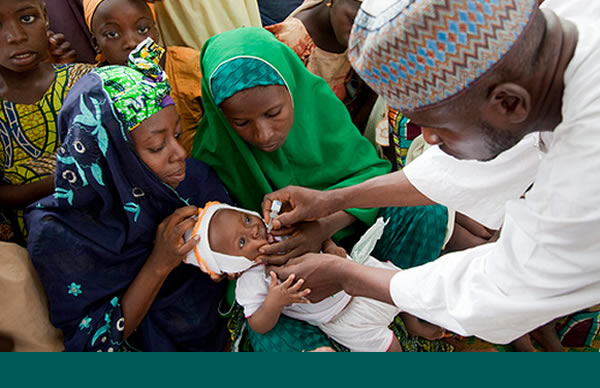As the world commemorates the 2024 World Immunisation Day on November 10, the U N said the day is celebrated to spread awareness about the benefits of vaccination and how it can prevent diseases in the long run.
The UN reminded us that vaccinations are essential for preventing and managing infectious disease outbreaks.
“The vaccines are crucial tools in the fight against antibiotic resistance and support the security of global health.
In spite of being one of the most effective public health initiatives, vaccination rates plateaued ten years before COVID-19.
“Health systems suffered severe setbacks in 2020 and 2021 due to the COVID-19 pandemic, related disruptions, and vaccination campaigns.
“In 2022, about 84 per cent of infants worldwide (11 crores) received three doses of the diphtheria-tetanus-pertussis (DTP3) vaccine, which protects against infectious diseases that can be deadly or cause major illness and disability.”
Judging by its impact, medical experts agree with the UN that immunisation has been a global health and development success story because it has saved millions of lives every year.
As the COVID-19 vaccines proved recently (and other vaccines before it), immunisation is among the most advanced achievements of modern science.
The UN said various vaccines have decreased infant mortality by half and saved millions of lives throughout the world.
MedGenome a genetic testing, genomics research and drug discovery solutions service provider, said the world has vaccines to thank for the elimination and control of many deadly diseases.
“Recent advances in medical science have resulted in enhanced protection bestowed by vaccination.
“Some diseases that once killed thousands of children, have been eliminated and others are close to extinction, primarily due to safe and effective vaccines.
“Even though some diseases, such as polio, rarely affect people in developed nations, all of the recommended childhood immunisations and booster vaccines are still needed.
“Travellers may inadvertently bring these diseases into developed nations and infect people who have not been immunised. Without protection via immunisations, these diseases may quickly spread through the population, causing epidemics.”
Mr Fagbolu Oladipupo, a UK-based public health expert, said vaccination is important because it serves as the shield that protects the body from harmful diseases.
“The most basic analogy I can give is that vaccination is like arming your body with weapons to boost your immune system to fight infections.
“You are not fighting the ‘war’ for it, but equipping it with what is needed to achieve victory.
“So once it has the equipment to fight, the system gains valuable experience to subsequently recognise and combat threats in the forms of viruses and bacteria, thereby reducing the risk of illness,” he said.
He also said that vaccination has led to much more success stories than it gets credit for.
“We have witnessed situations where vaccines have helped to either reduce the prevalence of some diseases or completely eradicate others.
“Of course, we know smallpox, which was a deadly disease, has been completely eradicated thanks to a global vaccination effort.
“We may not have eradicated polio and measles yet, but vaccination has helped reduce them in many parts of the world,” he said.
According to the US Centre for Disease Control (CDC), although different vaccines work in different ways, every vaccine helps the body’s immune system learn how to fight germs.
“It typically takes a few weeks for protection to develop after vaccination, but that protection can last a lifetime.
“A few vaccines, such as those for tetanus or seasonal flu, require occasional booster doses to maintain the body’s defenses.”
The Sustainable Development Goals (SDGs) highlight the importance of vaccination in SDG 3 and 17
For instance, SDG 3 states that “Good Health and Well-being — Vaccination is one of the most cost-effective ways to avoid disease, preventing 2-3 million deaths a year.
SDG 17 adds that “Partnerships for the Goals — Encourages global partnerships to support low-income countries in vaccine development and distribution.
Many people resist vaccination for various reasons ranging from religion to culture, others buy into anti-vaccine propaganda due to ignorance or fear of the unknown.
The failed Pfizer Trovan vaccine trial in Kano in 1996 provided a fertile ground for the resistance of polio vaccine in the northern part of the country in the last decade.
The ill-fated meningitis drug trail on 200 killed 11 children. After years of litigation, Pfizer paid $175,000 in compensation to each of the victims` families.
The Human Papillomavirus (HPV) vaccine protects against strains of HPV such as cervical and vaginal cancers. It is being resisted in some quarters on the ground that it causes infertility.
If there are doubts about the effectiveness of vaccines and immunisation, COVID-19 presents a case in hand about the importance.
After the world was thrown into despair, destruction, and death by a disease that it almost knew nothing about, health researchers swung into action and came up with vaccines.
Soon, normalcy was restored and COVID-19 became an event in the distant memory of many, thanks to a mass vaccination effort.
Unfortunately, there are still communities, countries, and societies where vaccines and immunization against deadly diseases are being resisted.
Experts say the worst form of vaccine and immunasation resistance is when they are formulated for children.
The CDC said, because a baby’s immune system is not fully developed at birth, babies face a greater risk of becoming infected and getting seriously ill.
Therefore, vaccines help teach babies’ immune systems learn how to defend against germs. Therefore, vaccination protects babies by helping build up their natural defenses.
On what fuels vaccine pessimism, the CDC said conspiracy theories regarding vaccines are built around the normal but mild side effects it has on children and adults alike.
“Vaccines, like medicine, can have some side effects. But most people who get vaccinated have only mild side effects or none at all.
“The most common side effects include fever, tiredness, body aches, and redness, swelling, and tenderness where the shot was given.
“Mild reactions usually go within a few days. Serious, long-lasting side effects are extremely rare,” it said.
Experts say vaccine safety concerns are understandable, but as the global health system has proved over time, vaccines remain an effective means of preventing life-threatening diseases caused by viruses and bacteria. (NANFeatures)





